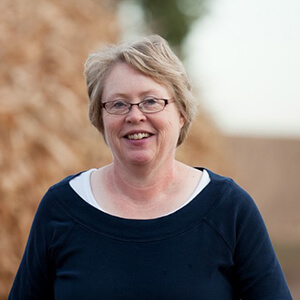

I have been pondering this subject for quite some time. I remember not long ago when no one talked about mental health (and especially rural mental health). But, the great news is we are hearing and learning more about it. Thankfully, there are more resources reaching mental health efforts.
Is Mental health an issue for rural America?
Based on an American Farm Bureau report, two out of three farmers have acknowledged the pandemic has affected their mental health and more than half are personally experiencing more mental health challenges than a year ago. I don’t doubt these statistics at all.
Knowing that mental health challenges are rising in rural America because of many factors, I wanted to share with you what we can do starting today.
Why the increase in rural mental health challenges?
As farmers, we continually work in an atmosphere of change. Weather, markets, financial, animal care, crop health, mechanical, etc. While many farmers will tell you they love the lifestyle of farming, we are also a business. We have bills to pay and food to put on our table. Our challenges are many. Mother Nature likes to assert herself in the most abrupt ways. And while you think markets have some sort of logical discipline, you find out quickly that what makes sense one day is the opposite the next.
Working with animals and crops presents its own challenges as we work to keep them healthy. And just when you think things are going well, something always breaks down. And there are days when all of these happen in a single day and we are exhausted trying to hold it together.
Farmers do not like to talk about mental health challenges. It’s not part of our vision of who we are. But you know what?
The mental health challenges are here and we have to learn what we can do about them and not keep silent. Sharing information about mental health is helpful and hopefully will lessen the stigma that is attached and we can productively address the issues.
I am First-Aid Certified in Mental Health Because of the wave of new awareness in mental health and especially rural mental health, I took an 8-hour course in First Aid Mental Health through our local Human Services.
Why do we need First Aid in Mental Health?
For many people, mental health is a taboo subject. No one wants to talk about it. It may appear to others that you are weak, but the fact is it’s here and you are not weak. Mental health problems are common, especially depression, anxiety, misuse of drugs, and alcohol. Nearly half of people experience a mental health challenge at least once in their lifetime and many do not seek help. Also, people are not well informed about how to recognize mental health problems. And help is available if we use the resources and tools available. There is no need to suffer and all the reasons to have hope.
What does First Aid Mental Health certified mean?
First and foremost, I am able to assist people who may be experiencing a mental challenge. I CANNOT diagnose people with mental disorders. But I can be kind, listen, reassure, assess and encourage people and/or seek self-help or outside professional help if needed. So let’s get started and talk about what you can do to help rural mental health.
** 7 Things You Can Do to help
1) Is there someone who is not acting like they normally do? Is there someone who has become withdrawn or their physical appearance is different? Has there been a change in normal activity? Do they have a lack of interest in activities they have enjoyed prior? Are they having more farm accidents? Has the appearance of their farm place changed?
2) Talk to your neighbors and friends. Stay in touch. Ask if they need anything and if something seems awry, ask if they are okay.
3) If someone is going through a mental challenge, be there for them. Sometimes just your presence may be enough. Stay in touch with them. Show empathy. Show them you care. And listen.
4) If they have animals, does it appear their animals are not cared for? Just be aware of the “red flags” and don’t just ignore them. Talk to them about it. Ask if they need any help to care for their animals.
5) If they are experiencing a mental challenge, ask them if they are thinking of suicide. If they are, tell them there is hope and the vast majority of people overcome their mental challenges. Don’t leave them alone and express empathy. Keep them safe by seeking help by accessing the National Suicide Prevention Hotline. See below for resources.
6) Acknowledge what they are going through. There is no lack of struggles on the farm. Really hear what they are saying and acknowledge, “I know it’s tough. Is there any way I can help you?”
7) Become informed about mental health. Take a First Aid Course for Mental Health, read about it in books like “Mental Health First Aid USA” or take part in the SafeTalk program.
Now let’s talk more about Suicide. It’s important that we address suicide.
Safetalk
SafeTalk is a program where participants learn to learn the signs of possible suicide and how to talk about it. Things you may not know about suicide: Most persons thinking of suicide want help to stay alive. They don’t want to die, they just don’t want to live but don’t know how to get help. People thinking of suicide find ways to invite help from others. Invitations are often missed, dismissed or avoided.
The best way to find out if someone is thinking of suicide is to ask directly. Asking directly about suicide will not give someone the idea. Avoiding direct and open talk about suicide is not helpful and could be dangerous. Anyone could have thoughts of suicide.
Everyone can learn how to help.




